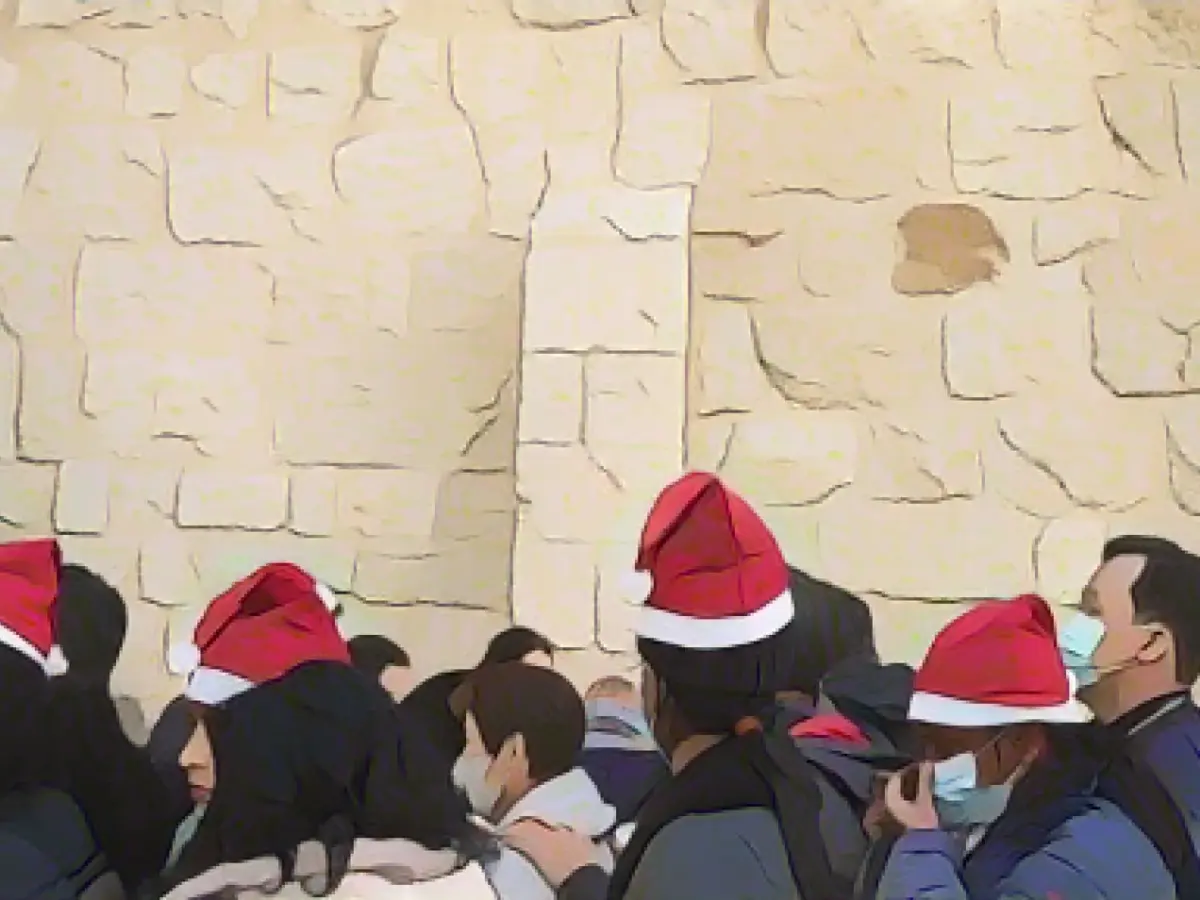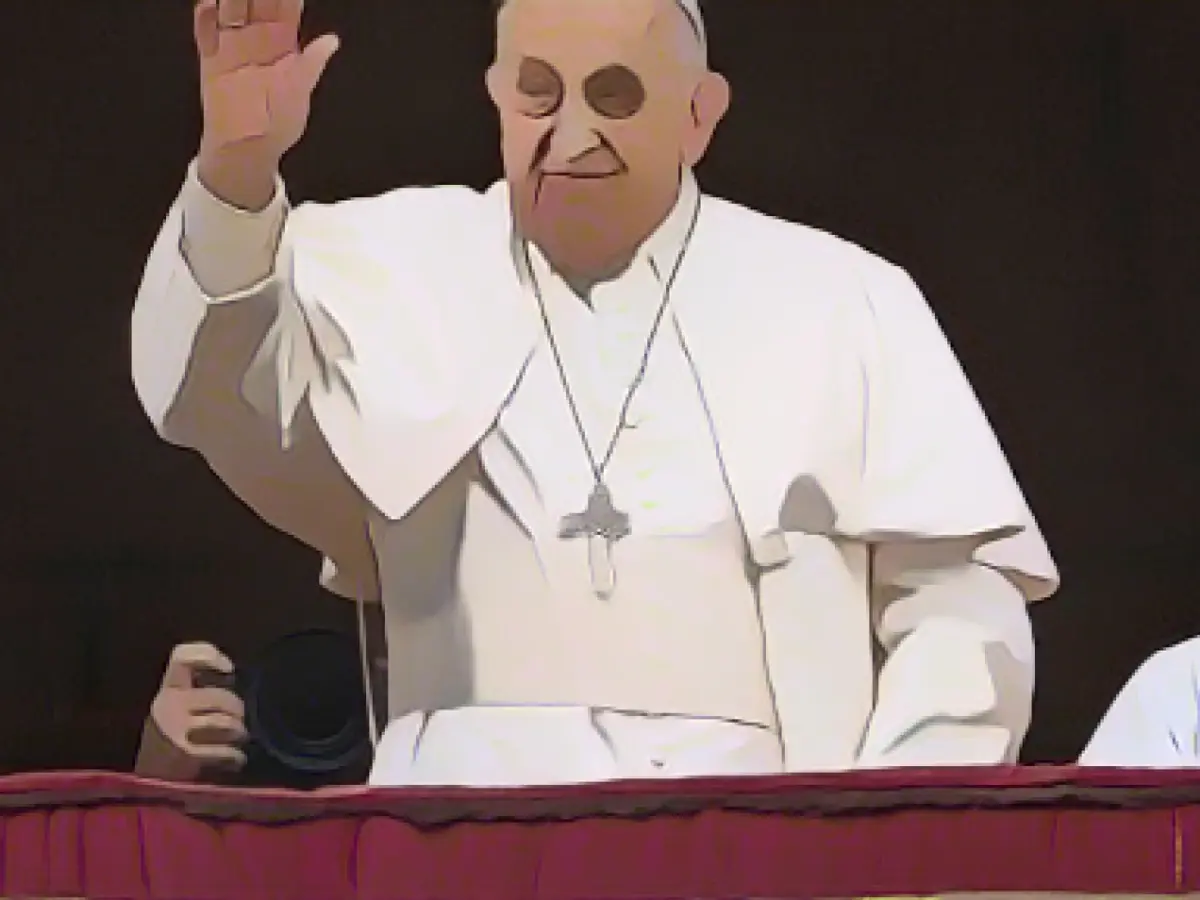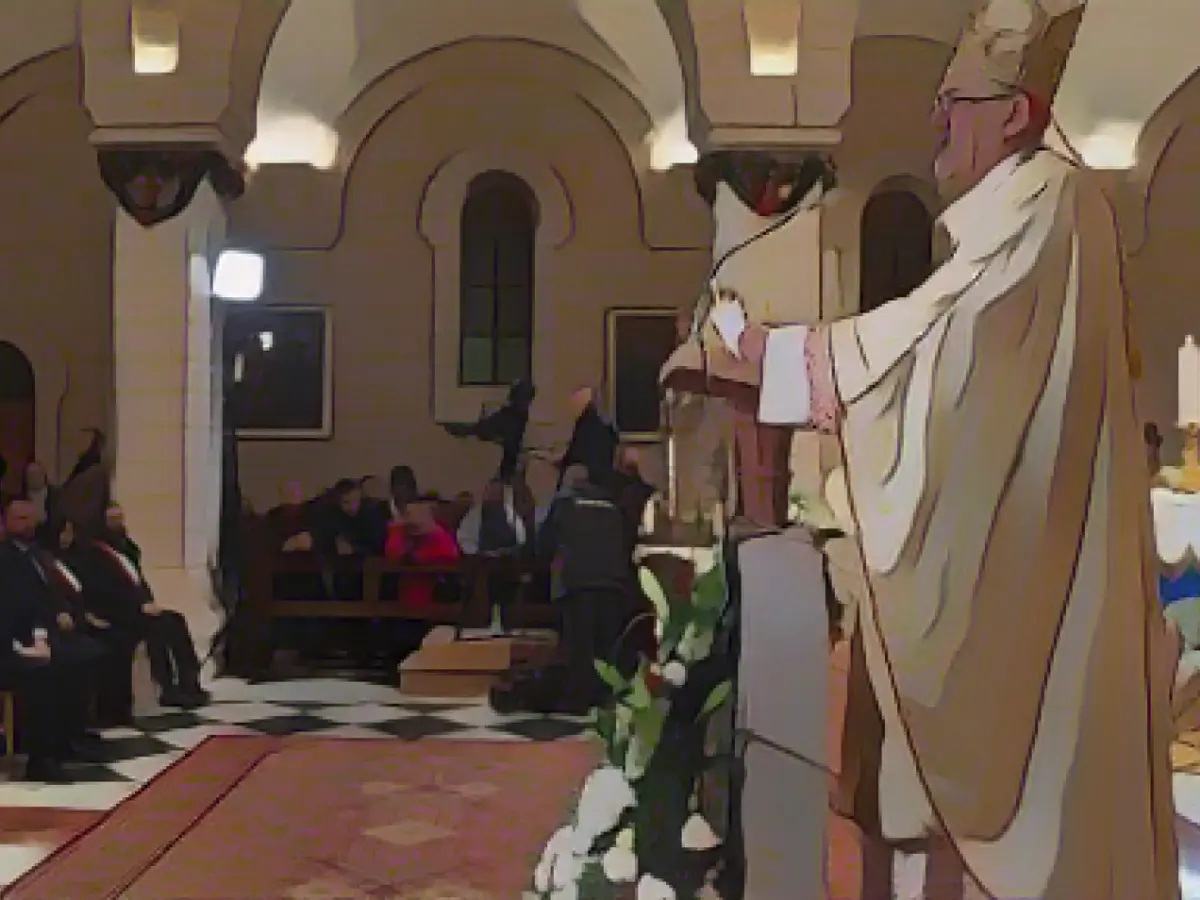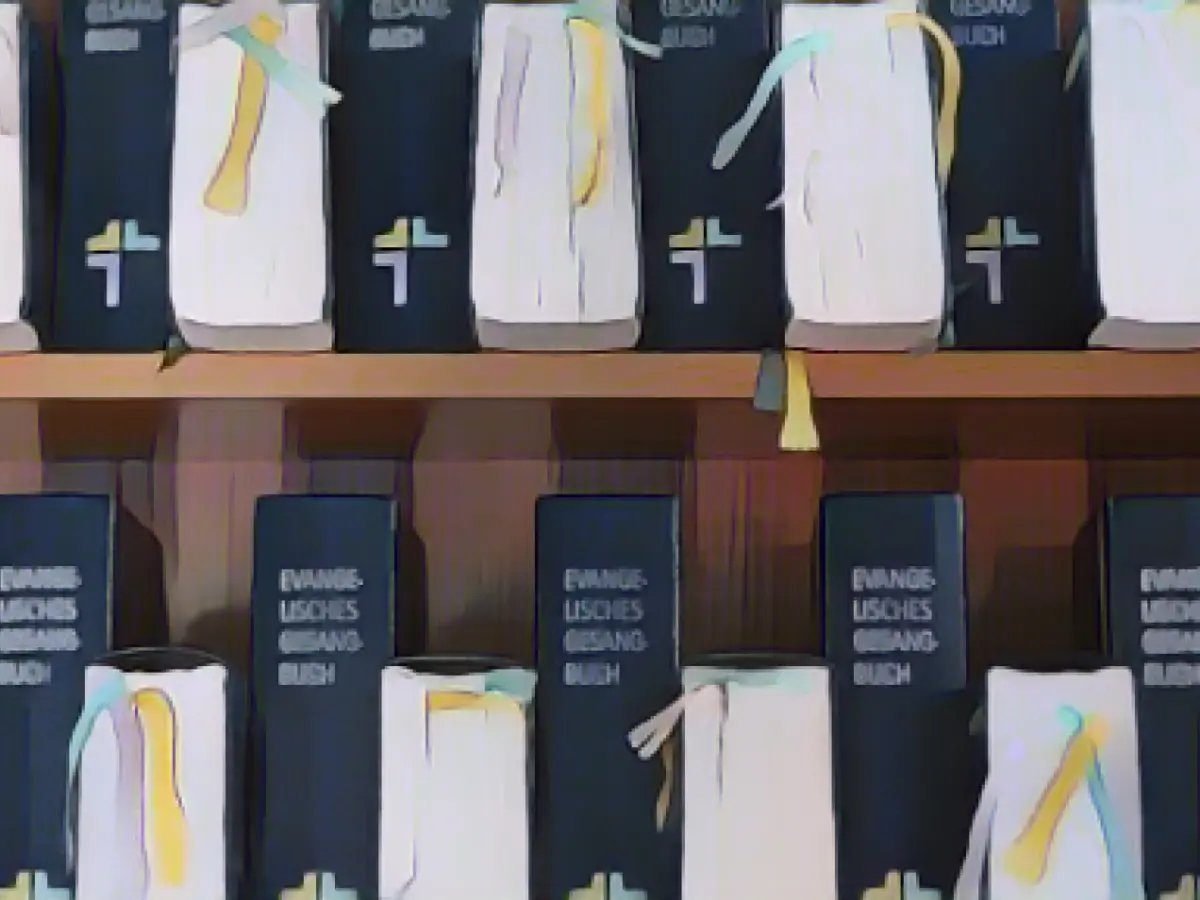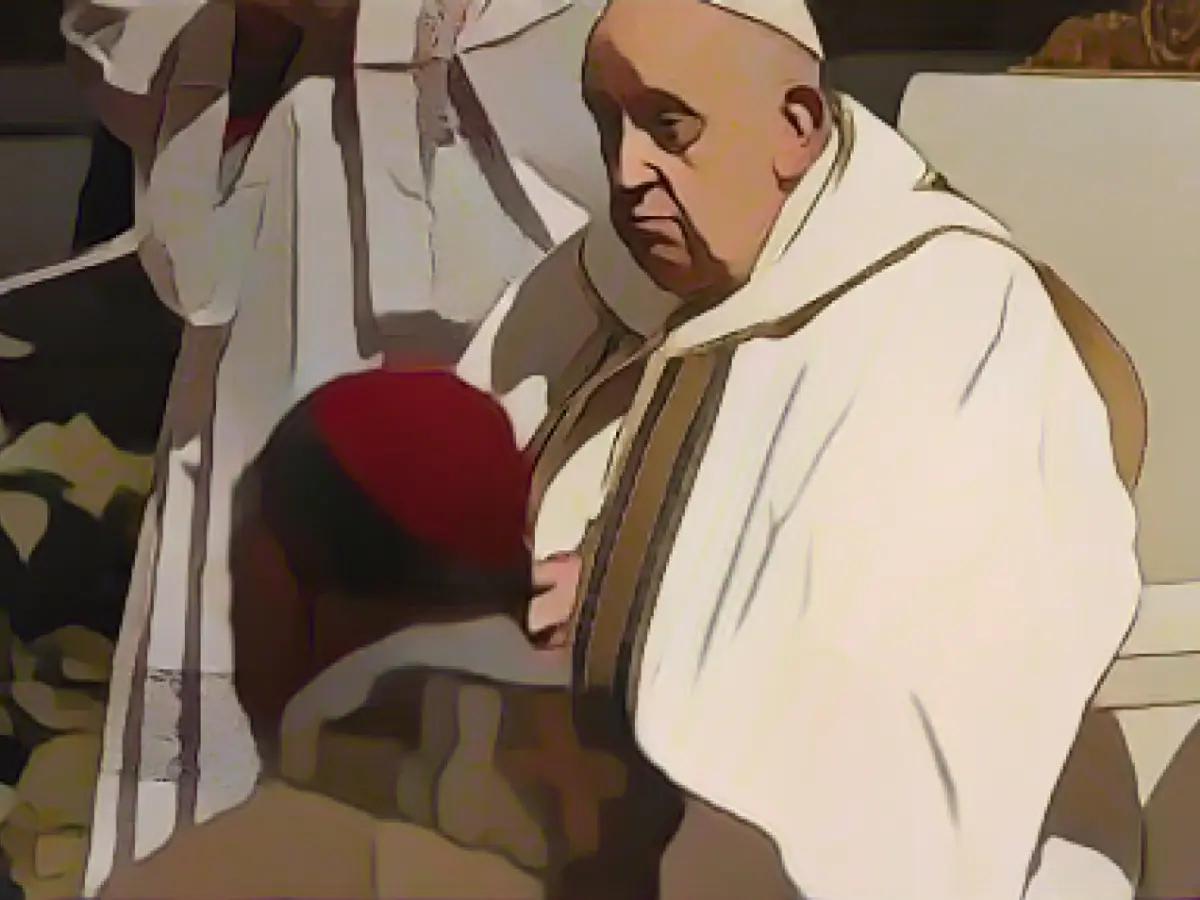A Stone Memorial Stands in Bethlehem's Church
Nestled near the altar and surrounded by wooden figurines is a tumble of stones. At its center lies a doll cloaked in a black and white Palestinian keffiyeh, as depicted in photographs. Members of Bethlehem's Evangelical Lutheran Christmas Church desire to remember the children lost beneath the Gaza Strip's ruins, according to Pastor Munther Issak. "The aim is that Christ was born among the oppressed and those who suffer today," he says, explaining that the installation will replace the traditional Christmas tree.
Bethlehem, situated in the southern West Bank and revered as Jesus Christ's birthplace, has historically welcomed masses of tourists during the holiday season. However, this year, the Gaza conflict overshadows the festive spirit.
No Holiday Decorations
The Christmas tree that usually adorns the Church of the Nativity during the Advent season is absent. In November, Jerusalem's church leaders decided against holiday decorations in the Holy Land due to the Gaza crisis.
Despite the absence of festive trimmings, the Christmas Eve midnight mass in Bethlehem, led by the Latin Patriarch of Jerusalem, Cardinal Pierbattista Pizzaballa, is scheduled to take place.
"Bethlehem is saddened this year," a melancholy Pastor Munther Issak, whose church is a mere stroll from the Church of the Nativity, confirms. "We are all sad and suffering due to Gaza's plight."
Triggered by the worst act of terrorism in Israeli history, committed by Hamas terrorists near the Gaza Strip border on October 7, more than 1,200 lives were lost. In response, Israel launched an onslaught of air strikes and initiated a ground offensive in the area at the end of October. According to the Islamist Hamas-controlled health authority, more than 18,000 casualties have been reported.
Fear of Escalation
In addition to suffering from the conflict, Bethlehem's residents are also concerned that the war may spread. Economic hardship is prevalent due to the tourism sector's dependence on tourism, as Israeli military roadblocks make travel to the city difficult for Palestinians. Israel seized the West Bank and East Jerusalem during the 1967 Six-Day War and claims these territories for its own state with East Jerusalem as its capital.
In the Holy Land, Christians represent a tiny minority. Approximately 1,000 reside in the Gaza Strip, among a total population of about 2.2 million. They make up just under 2% of Israel's 10 million citizens and roughly 1.5% of the West Bank's 3.2 million Palestinian residents.
The grimest circumstances confront the Christian community in the Gaza Strip. Haitham Saba used to prepare for Christmas with his family each year, purchasing decorations, new clothes, and sweets. They would then celebrate together at the Greek Orthodox Church in Gaza's old town.
This year, Saba had to retreat to the church alongside his Muslim neighbors, seeking refuge from Israeli airstrikes. The church was reportedly hit by an Israeli airstrike in October, claiming the lives of 18 individuals seeking shelter.
A Muted Christmas
Four Christians were among the 1200 fatalities on October 7 in Israel. Since the conflict began, 21 Christians have lost their lives in the Gaza Strip, according to Father Nicodemus Schnabel, Abbot of Jerusalem's Dormition Abbey.
The Old City of Jerusalem, with its narrow shops, is devoid of the usual Christmas illuminations, decorations, and throngs of tourists. Instead, Christians are celebrating the holiday in intimate circles, Schnabel explains. "Everything pertaining to religion will unfold, while the surroundings are what have been stripped away," he says. "It's about an intimate Christmas, centering on Jesus Christ's birth." The church's Christmas tree status remains undecided.
The Dormition Abbey with its store, cafe, and church remains open for business. Church services and concerts continue to draw attendees. "I wish for individuals to feel that entering into this space lifts a burden from them," the Abbot reveals. The concerts are well-attended, drawing between 200 and 300 listeners.
As every Christmas Eve, the monks will lead a procession to the Church of the Nativity in Bethlehem. They carry a scroll recording the names of individuals who have requested it. For the first time, this list includes victims of the October 7 massacre and the conflict that followed, as Schnabel elucidates. Those killed include Christians, Muslims, and Jews, at the request of their families.
Further Reading
- Year of Climate Records: Extreme Becomes the New Normal
- Precautionary Arrests Illustrate Islamist Terror Threat
- SPD Rules Out Budget Resolution Before the End of the Year
- Numerous Oil, Gas, and Coal Lobbyists at Climate Conference
Enrichment Insights
The ongoing Gaza war has brought additional challenges to Bethlehem and Jerusalem's Christmas celebrations by heightening existing difficulties. Here, we've summarized the major impacts on this festive season and how Christians are finding ways to cope.
Impact on Christmas Celebrations
- Reduced Tourism: The conflict has reduced the number of tourists, which is essential for the local economy. Businesses, particularly hotels and stores in Bethlehem and Jerusalem, are suffering as a result of the lack of patrons, lessening the lively atmosphere associated with Christmas in these cities.
- Security Concerns: The Gaza war has instilled a sense of unease, making it difficult for people to venture out and engage in typical holiday activities. For instance, the streets nearby the Church of the Holy Sepulchre in Jerusalem are usually bustling with life, but Israeli checkpoints have discouraged visitors, resulting in darkened stores and few shoppers.
- Economic Hardship: The war has intensified economic struggles, particularly for Palestinian Christians in the region. Many families rely heavily on tourism for their livelihoods, but the absence of guests is impacting their incomes.
Coping Mechanisms
- Community Support: Despite the adversities, the Christian community in Bethlehem and Jerusalem continues to demonstrate resilience and hope. For example, individuals like Eliana, a Christian woman from Bethlehem, have chosen to return to the city after studying abroad, inspired by a sense of purpose to call the Holy Land home.
- Spiritual Strength: The conflict has underscored the spiritual fortitude of the community. During worship services, like the one at St. Mary’s Melkite Byzantine Catholic Church in Bethlehem, the focus on traditional liturgy and ritual provides comfort and confidence. The presence of visiting groups, like the Canadian Friends of Sabeel, offers hope and solidarity to the community by sharing their struggles and faith together.
- Pursuit of Peace: Many Christians in the region are championing peace and reconciliation. They believe that the presence of pilgrims playing a vital role in the healing process and contributing to the rebuilding of the region. Those who visit the area send a message of unity and hope to the community, bringing forth a renewed sense of optimism.
In summary, the Gaza war has further complicated Christmas celebrations in Bethlehem and Jerusalem, leading to a decline in tourism, increased security concerns, and exacerbated economic hardships facing Palestinian Christians. However, the community is banding together, relying on their faith, fostering hope, and advocating for peace to overcome the challenges.
